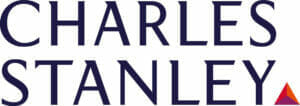In this Q&A, Jane Bransgrove, Investment Director at Charles Stanley, tells IFA Magazine everything there is to know about their Responsible MPS range. Jane highlights how the model portfolios are really putting their money where their mouth is in terms of responsible investing – providing exciting investment opportunities whilst tackling sustainability challenges.
IFA MAGAZINE: Can you briefly give us an overview of your approach to responsible investing?
JB: At Charles Stanley, we believe that sustainability issues can represent both risks and opportunities and that it’s important to integrate these factors into our investment process. It is essential that we understand what this means for our asset allocation views – investing in the US is likely to result in a better ESG rating than emerging markets, for example. We also look to incorporate these factors from a bottom-up holding selection angle – and where we hold third-party funds that we understand how these can make a positive contribution. Therefore, we embed a variety of considerations into our due diligence process.
In addition, we consider a company’s or region’s current situation and its direction of travel in terms of responsible investing. What are the longer-term goals for finding a solution to environmental challenges – such as how they will address the issue of carbon emissions.
Moreover, we also ensure that our investment approach includes active stewardship and engagement – for example, we are part of the PRI collaborative engagement platform, for our direct holdings, which allows us to collaborate with other PRI signatories and get involved in various engagement projects.
IFA MAGAZINE: Could you summarise your investment approach within the Responsible MPS range?
JB: The Responsible MPS range is one of the suites of models that we offer – and although some features resemble our other models, there are some differences too.
Advisers will be familiar with, and will hopefully value, elements of the range which are similar to our other models. For example, they use the same central investment process as our other models – which includes active asset allocation. The portfolios also have a total return target – over and above inflation – which helps advisers with cash flow planning. Furthermore, the range has a strong risk management approach, as this focus on risk-adjusted returns has always been extremely important to us. In addition, the models are independently risk-rated by multiple providers – as we know that many advisers rely on these ratings.
One difference between these models and some of the other suites in our range and in the wider marketplace is that we predominantly use passive implementation. This allows us to keep costs down.
The key difference is that the holdings within the model portfolios have responsible characteristics – for example they’re tracking an ESG or socially responsible index, or they have a thematic focus. Therefore, unlike some models with sustainable labels which might only have a couple of responsible funds dotted throughout the portfolio – investors can be confident that our models are doing exactly what it says on the tin. The models also have approximately a third of the carbon intensity and a quarter of the fossil fuel reserves exposure compared to other passive models – as well as far less exposure to industries such as tobacco.
Our overall objective is to achieve an improved ESG rating and provide enhanced characteristics across the ESG pillars in comparison to our regular suite of models – and we use MSCI to help us measure this.
IFA MAGAZINE: How do you minimise the risks of ‘greenwashing’?
JB: I believe it’s vital that we are completely transparent about what the models are – and what they are not – and so we have been extremely careful in labelling them as responsible. Although we do not yet know what the FCA’s final sustainability disclosure requirements and investment labels will be, we believe we’re sitting in a favourable position with regards to the spectrum and, therefore, may be able to upgrade our labels.
We are definitely not at the dark green, impact-end of the spectrum – but are comfortable labelling our models as responsible and are confident that these labels will not be downgraded. As I mentioned earlier, we use holdings that have responsible characteristics built in, which ensures that sustainability runs throughout the portfolios – and is not merely a token gesture. In regards to the FCA classifying ESG labels, the criteria will perhaps require allocation to specific areas. We are optimistic that we will meet these requirements – even if the thresholds are high. In addition, our models are ESG rated by MSCI, which is an independent and well-recognised provider in the field.
IFA MAGAZINE: In what ways do you keep advisers informed and up to date with the progress of the MPS range?
JB: Keeping advisers informed and updated regularly using a range of different communication channels is really important to us. As with all the suites of models in our range, we supply monthly factsheets and rebalancing updates. We rebalance our portfolios roughly every quarter – however, this is not automatic, and we will always provide information about any changes we make. Furthermore, we run quarterly webinars for advisers, often dedicating a slot to our responsible models, and we produce quarterly reports. Finally, we have made the information available on a number of databases – including FE Analytics, and Morningstar’s new model portfolio database. Our sales team can also provide information to advisers on request.
We recommend that advisers check out our responsible MPS range to support their clients’ objectives as it offers exciting investment opportunities, whilst making a positive difference by tackling sustainability issues. What more could you ask for!
For more information on Charles Stanley’s Responsible MPS range, click here or call 020 4502 7218.


Jane Bransgrove, Director of Asset Management, Charles Stanley
Jane Bransgrove joined Charles Stanley in 2013 when the company acquired Pan-Asset Capital Management. She previously worked at Sarasin Chiswell (formerly Cantrade), having studied at Loughborough University reading Accounting and Financial Management. She has been an investment manager for over 25 years and manages model portfolios for financial advisers, specialising in active asset allocation combined with passive implementation. Jane is an Associate member of the CFA Society of the UK, holds the CFA ESG Certificate and is a Chartered Member of the Chartered Institute for Securities & Investment














